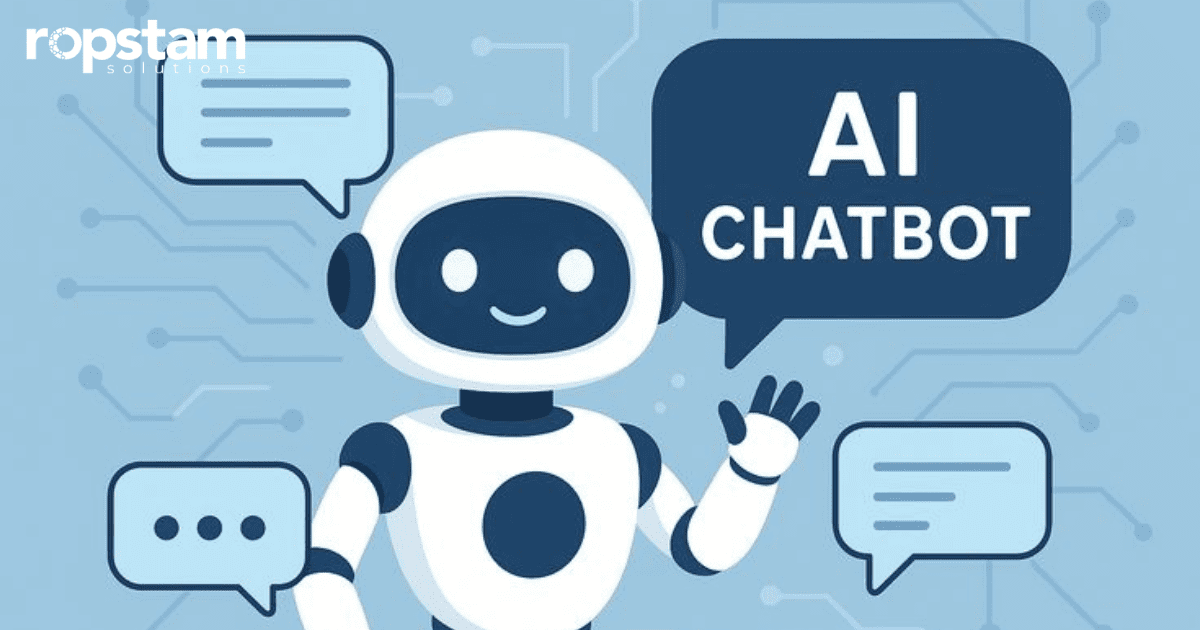Artificial Intelligence (AI) is no longer a futuristic concept—it’s a powerful reality shaping industries, transforming user experiences, and redefining what technology can achieve. From predictive analytics and chatbots to autonomous systems, AI’s capabilities have made it an essential part of modern software development. Yet, with this technological power comes a moral responsibility: ensuring that AI systems are developed and deployed ethically.
In recent years, discussions around “ethical AI” have moved from academic circles to the mainstream tech world. As developers integrate AI into applications that impact real lives—whether through healthcare, hiring, finance, or public services—they face pressing questions: How can we prevent bias in algorithms? Who takes accountability when AI makes a wrong decision? And how can we ensure transparency in systems that often function as black boxes?
For software development agencies, understanding ethical AI is no longer optional—it’s a business imperative. Clients, users, and regulators now demand fairness, accountability, and transparency from AI-driven systems. This blog explores what ethical AI means, why it matters, and how developers can integrate ethical principles into their coding practices and development frameworks.
What Is Ethical AI?
Ethical AI refers to the practice of designing, developing, and deploying artificial intelligence in ways that align with moral values, human rights, and societal well-being. It ensures that AI systems are fair, transparent, accountable, and respectful of user privacy.
Unlike traditional software systems, AI learns from data and evolves. This introduces the possibility of bias, discrimination, and unintended consequences. Ethical AI focuses on mitigating such risks through conscious design decisions, responsible data handling, and ongoing evaluation.
At its core, ethical AI means putting human interests above machine efficiency. It’s about ensuring that AI serves humanity—rather than the other way around.
Why Ethical AI Matters in Software Development
AI technologies are deeply embedded in today’s digital products—recommendation engines, automated decision-making systems, and predictive models. When such systems are not designed ethically, they can cause harm on a large scale.
For example, biased algorithms can lead to unfair hiring practices, inaccurate medical diagnoses, or discriminatory financial approvals. Privacy breaches can occur when AI systems collect or infer sensitive personal data without consent. Moreover, a lack of transparency can erode user trust and brand credibility.
From a business perspective, ethical lapses in AI can result in reputational damage, regulatory penalties, and customer loss. Governments and organizations are also introducing stricter AI compliance frameworks, such as the EU AI Act, which categorizes AI systems by risk level.
For software development agencies, integrating ethical AI practices is both a moral and strategic move—it ensures that products remain compliant, trusted, and sustainable in the long term.
Core Principles of Ethical AI
Fairness and Non-Discrimination
AI systems must treat all users equitably, regardless of gender, race, or background. This requires developers to evaluate datasets for hidden biases and use diverse data sources. Techniques such as bias detection tools and fairness testing can help reduce skewed outcomes.
Transparency and Explainability
Users and stakeholders should understand how AI-driven decisions are made. Developers can achieve this by incorporating explainable AI (XAI) models that make algorithmic reasoning interpretable. Documentation and clear communication about system limitations also foster trust.
Accountability
Accountability ensures a clear chain of responsibility for every AI outcome. Developers, product managers, and business leaders must collectively define who is responsible for monitoring and correcting errors or biases when they occur.
Privacy and Data Protection
Data fuels AI—but it must be collected, stored, and processed responsibly. Following privacy-by-design principles, anonymizing sensitive data, and ensuring compliance with laws like GDPR are critical steps toward ethical AI.
Safety and Reliability
AI systems must be robust and secure, minimizing harm caused by technical errors or external attacks. Regular audits, stress tests, and human oversight mechanisms can help ensure system reliability in real-world scenarios.
How Developers Can Implement Ethical AI
Start with Ethical Design
Ethics should be part of the project blueprint, not an afterthought. Begin every AI project with clear ethical guidelines and objectives. Ask key questions: What could go wrong? Who might be affected? What safeguards can we build in from the start?
Audit Your Data
Data bias is one of the most common sources of unethical AI behavior. Developers should ensure that training data is diverse, balanced, and representative. Use open-source bias detection tools to identify and correct skewed data patterns before model deployment.
Adopt Explainable AI Models
Favor models that are interpretable over those that operate as black boxes. Decision trees, linear models, and visualization tools can help users and developers understand why a particular output was generated.
Conduct Regular AI Ethics Reviews
Just as software undergoes testing cycles, AI systems should undergo ethical reviews. These reviews can assess fairness, accuracy, and compliance throughout the lifecycle—from data collection to deployment and maintenance.
Encourage Cross-Functional Collaboration
Ethical AI is not solely a developer’s responsibility. Collaboration between developers, data scientists, business leaders, and legal teams ensures that diverse perspectives are considered during design and implementation.
Stay Informed on Regulations and Standards
Ethical AI is a rapidly evolving field. Developers should keep up with international standards and frameworks like ISO/IEC 42001 (AI management systems) and guidelines from organizations such as the IEEE and OECD.
The Role of Software Development Agencies in Promoting Ethical AI
Software agencies play a pivotal role in shaping how AI technologies are built and deployed. Beyond writing code, agencies act as advisors and innovators—helping clients understand both the opportunities and the ethical risks of AI adoption.
By embedding ethical AI practices into their workflows, agencies can:
- Build client trust through transparent and fair development processes.
- Differentiate themselves in a competitive market by emphasizing responsible innovation.
- Ensure long-term sustainability by aligning with global compliance standards.
Agencies can also educate clients about the potential risks of unethical AI and guide them toward responsible practices that balance innovation with integrity.
Conclusion
As AI continues to evolve, its influence on human lives will only grow deeper and more complex. With that comes the shared responsibility of ensuring technology serves humanity ethically and fairly. Ethical AI is not just a technical goal—it’s a moral compass guiding how software developers and organizations approach innovation.
Developers have immense power to shape AI systems that respect human values, foster trust, and promote inclusion. By implementing fairness, transparency, and accountability into every stage of development, they can help create technology that uplifts rather than marginalizes.
For software development agencies, ethical AI is also a competitive advantage. In a world increasingly concerned with data misuse and algorithmic bias, businesses that prioritize ethics stand out as leaders in trust and innovation. The key lies in embedding these principles early, reviewing them often, and never losing sight of the people behind the data.
Ethical AI is not a finish line—it’s a continuous journey toward a more responsible digital future. Developers who understand this will not only build better products but also help build a better world.













